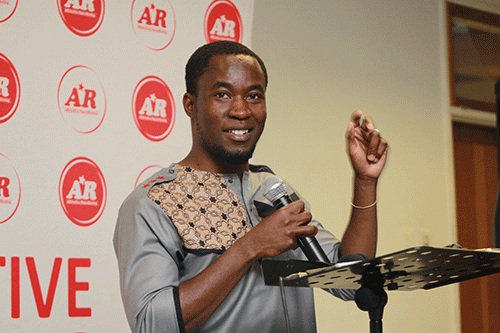Job Amupanda has asked Windhoek High Court Judge Shafimana Uietele to protect him from costs should he fail in his challenge to have the veterinary cordon fence, also known as the red line, removed.
According to the leader of the Affirmative Repositioning (AR) Movement, since the matter involves public interest, he should not be punished for bringing such an important subject to the fore.
He said, according to Article 12 of the Namibian Constitution, matters of public interest must be resolved efficiently and as cost-effectively as possible, and ensure that all parties are on an equal footing.
According to Amupanda, the opposing parties in the matter – the minister of Agriculture, Water and Land Reform, the government of the Republic of Namibia, the Attorney General, an official from the directorate of veterinary services Hango Nambinga and the Meatboard of Namibia – have amassed four instructed counsel in addition to two instructing firms.
Furthermore, he said, the respondents are not limited in terms of the legal fees they can pay to defend this application, compared to the applicant who relies on pro bono representation in addition to one instructed counsel.
He submitted there is no equality of arms, and that a protective cost order would not result in the sort of prejudice he would suffer if the orders were not granted.
According to Amupanda, this is a case with the potential of having far-reaching consequences as far as the public and national interests are concerned.
All in all, he said, should the challenge succeed, it will have serious positive ramifications, which makes it abundantly clear that the application is not frivolous or vexatious and in the interest of the public; therefore, a case has been made out for a protective cost order in his favour.
On the other hand, the government respondents argued there is no pressing public interest to resolve the constitutionality of the continued use of the VCF to control animal health.
In any event, they argued, it is the policy of the Executive to cautiously move the fence north, expanding the foot-and-mouth disease-free zone to include the northern communal areas without causing Namibia to lose its free zone status with the World Organisation for Animal Health.
In fact, they said, it is then in the public’s interest to leave it to the Executive to decide if, when and how the VCF should be moved or removed.
With regards to the application for protection, the government respondents said it is undesirable, as it will encourage Amupanda to litigate wastefully, which his past conduct already illustrated.
“One can only imagine to what extremes the plaintiff (Amupanda) may elevate his wasteful litigation with the immunity against an adverse cost order provided by the protective costs order.”
The Meatboard of Namibia argued it is trite that costs follow the event and that costs they are at the discretion of the court.
According to them, the court must be satisfied the issues raised are truly of public importance.
According to them, Amupanda has no prospect of success in his application, as he failed to allege necessary or sufficient facts whereupon the court can determine whether the issues are of general public importance – considering the consequences should the VCF be removed.
Furthermore, they said, he failed to make out a case that the public interest requires that the constitutionality and removal of the VCF should be resolved; failed to provide any definitive amounts for what the costs could amount to, and
he has substantial direct and private interests in the outcome of this action.
Furthermore, they claim, this action is to benefit Amupanda’s political agenda, as the media knew about it even before
papers were served on the respondents.
Judge Uietele remanded the application to 6 December for a hearing to determine a date for the hearing of the application.
He did not make any order regarding costs, except to order that each party shall carry its costs for yesterday’s hearing.
– rrouth@nepc.com.na


